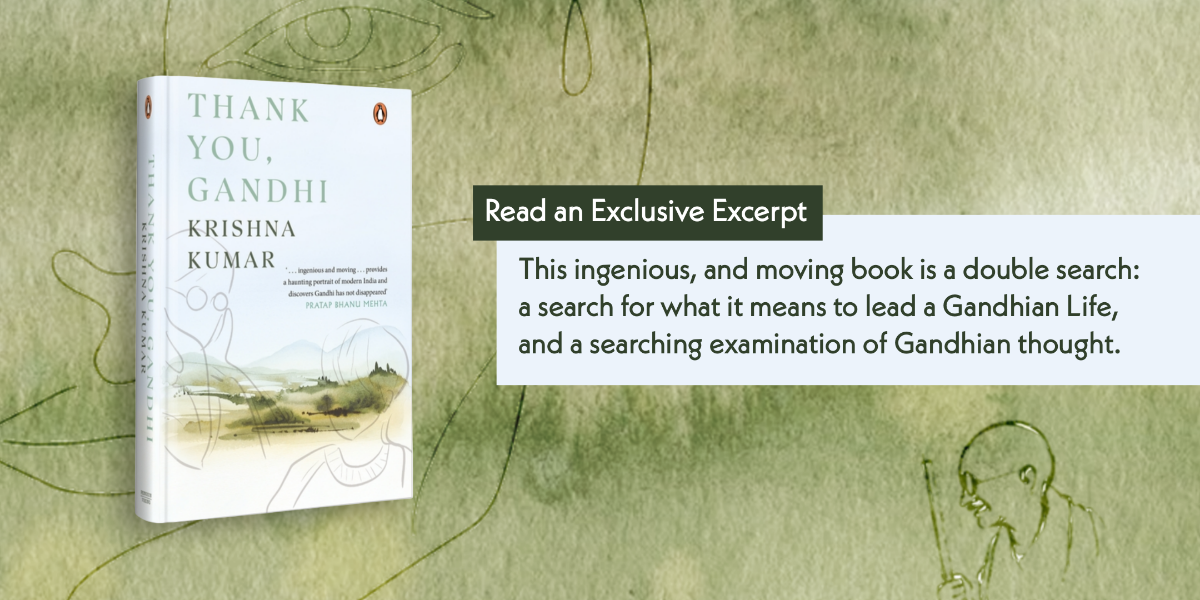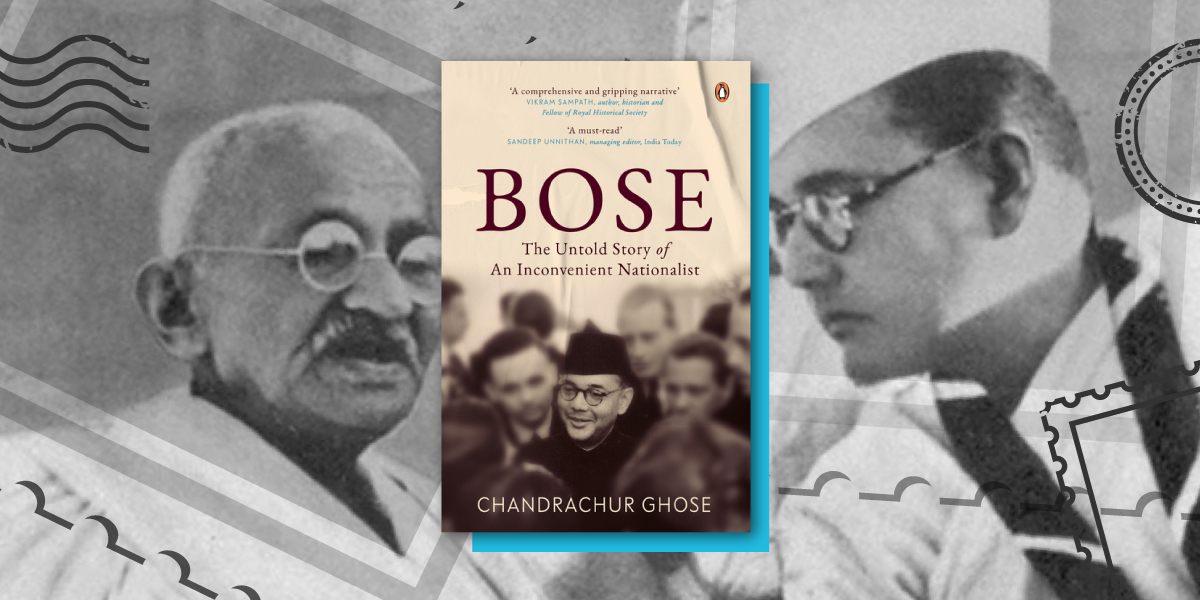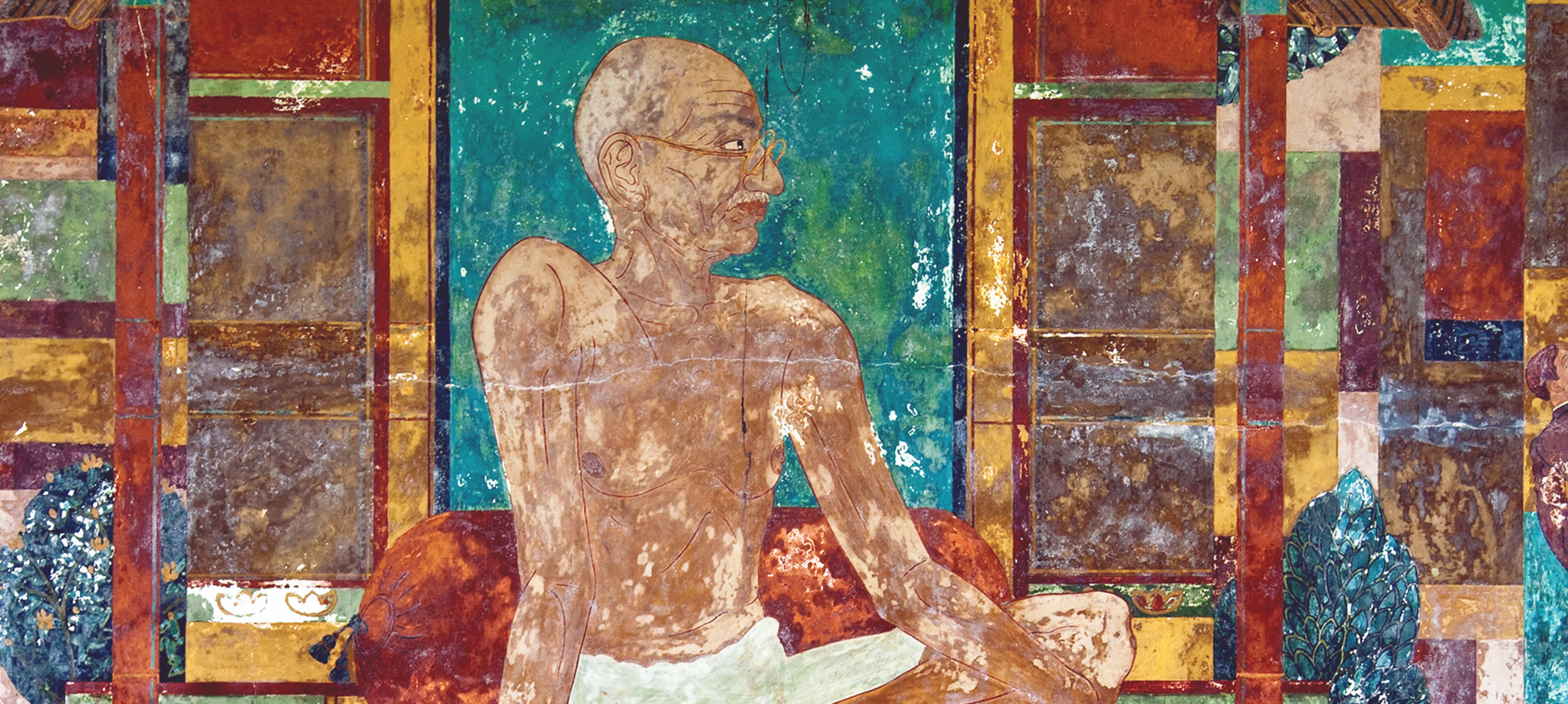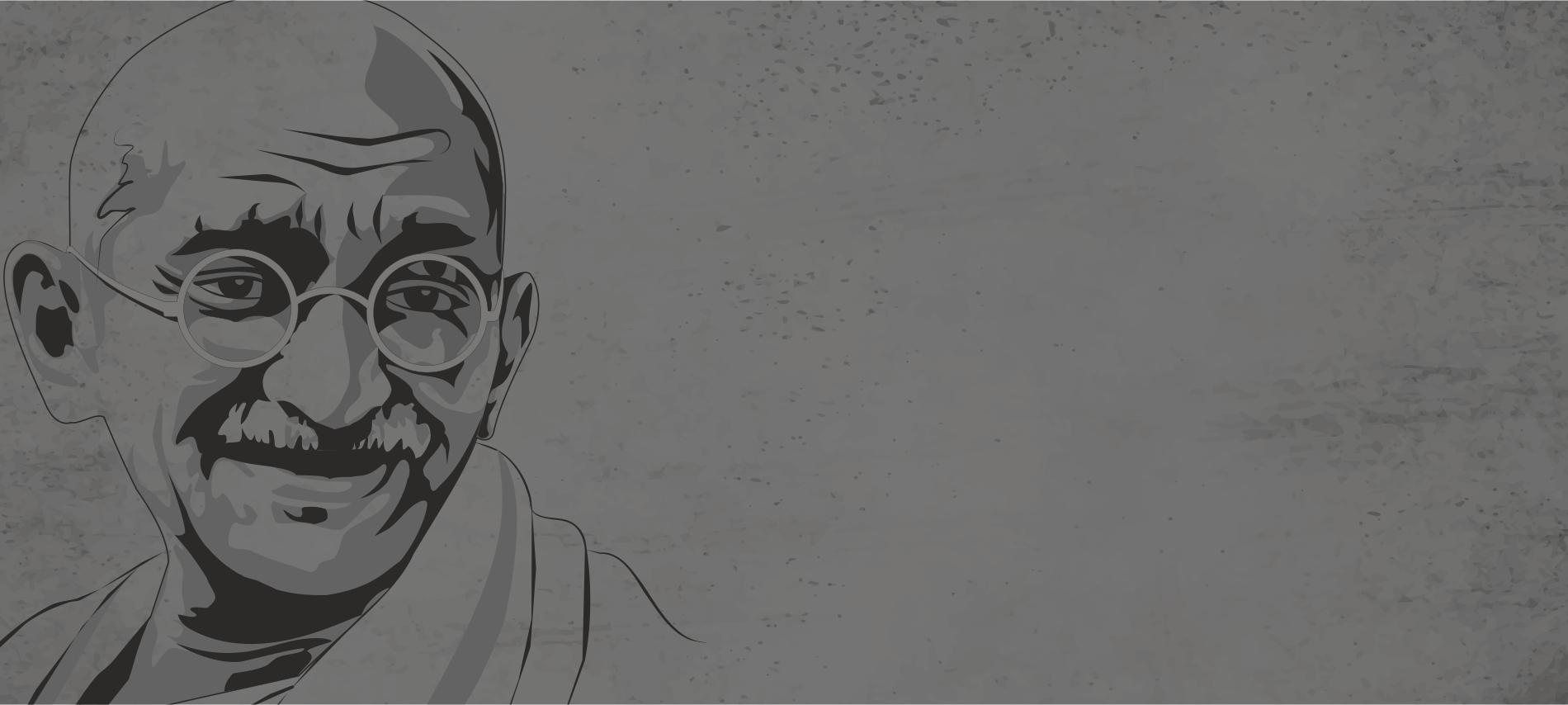What happens when a bureaucrat’s untold story, a tragic chapter of India’s history, and the timeless teachings of Gandhi converge into one compelling narrative?
Read the excerpt of Thank You Gandhi to know more.
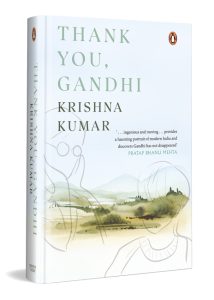
The parliamentary model rests on deference to the majority view. It is a crude notion, and that is why Gandhi disapproved of it. The idea that a numerical majority can decide things did not match his favourite totem—truth, a strange, elusive, almost funny word. It’s funny because it takes so many forms, the way a magician conjures colours in the sky. Early at school one learns to call it ‘the’ truth—as if there is just one truth whereas lies are always many. I didn’t know before entering college that when truth is under dispute, it is a lawyer’s job to establish it. As a young boy, I was attracted to law because I had read that Gandhi and Nehru were lawyers before they became political leaders. It must be a great profession, I thought, but K.’s father, who was an eminent lawyer in our district, dissuaded me from studying law. You may work hard as a lawyer, he said, but you can’t win a case if the judge has received a bribe. I was quite shocked when I first heard this, but later on when I joined the civil services, I understood why K.’s father had warned me against studying law. Soon after joining the civil services, I learnt how truth-hiding became, at times, as important as truth-seeking. As a small boy, I had seen the dead body of a dacoit, stretched out in the hockey ground of my home town. My elder sister had whispered in my ear: ‘The minister wouldn’t know . . . It’s a farmer.’ Her whisper made no sense for years; then, one day the meaning dawned on me, that liberties can be taken with the truth to impress a VIP.
‘Truth’ has proved to be the trickiest of all the values that Gandhi espoused for his enemies to dent or erase, but its meaning has been shifting all along. When young people today are told that Gandhi died for truth, they are puzzled. If they hear that a film is based on a true story, it is assumed that the story is real. When they watch something strange on the screen of their smartphone or television, how often do they stop to ask if it is real, I wonder. And who would they ask? They know that it might be fake, but how can anyone be sure of that? True or fake, it hardly matters so long as it is amusing. That is more important now than truth.
Gandhi’s idea of truth was probably different. People rarely consider it necessary to explain it, but one of my primary school teachers did. He said, ‘It meant the right way—one can call it goodness.’ That left a lot of scope for confusion, I thought, much later. If truth is goodness, can a newspaper story be true or otherwise? An account of what is going on may be real or fiction. Perhaps my primary teacher and Gandhi meant that a story is true when the object of describing something has the potential to do some good. It helps to think like that, but it doesn’t calm my present rage. My despair sits deep within me. My mind wanders. The Congress is paying for its various sins, but its vanquishers have exceeded all previous records of propagating falsehood. The ‘facts’ they flaunt about their achievements last a few weeks, mostly a few days before a lost soul challenges them. The figures given out for marking India’s economic growth and prospects were dummies. The real figures had to wait for the long election spring and summer to pass. Slogans and promises don’t sit well with truth, but the vast voting public didn’t seem to mind.
I am surrounded by these falsehoods—and I am not a part of the so-called social media where fakery roams free. Day in and day out, I endure the untruth. It serves as a cover for hate—the real agenda of the new regime. What the British learnt to practice bit by bit—how to dig trenches between communities—has swollen into the theatre of the grotesque. It is beamed every evening to every region of the waiting nation. It numbs and terrifies as you watch. Hating its actors and directors restores my sanity for a moment, but I can still hear myself talking as if I am deranged, to Gandhi.
‘Is it all right to hate some people? Will you let me hate the men in power now?’
‘So, you hate them . . . do you?’
‘Yes, but I feel you will not be pleased . . . You never hated anyone it seems. Is that true?’
‘I tried not to.’
‘I also try but I don’t succeed.’
‘You must ask yourself why you don’t.’
***
Get your copy of Thank You Gandhi by Krishna Kumar on Amazon or wherever books are sold.







